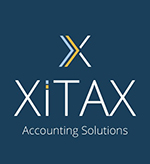The State Pension – will you qualify?
Xitax are not financial advisors, but we do like to ensure our clients have access to important information that may benefit them financially.
In recent months I have come across a number of instances where new clients had no idea that they were at risk of not qualifying for a state pension because of missed National Insurance Contributions (NICs). One example is a successful doctor whose previous accountant had not put him on the payroll. This meant that not only had he paid higher tax through his limited company, but he had been missing contributions towards his state pension. If this had continued then he would not have received a full state pension at retirement.
To receive the new state pension you have to have paid a minimum of 10 years NICs. To receive the full state pension, you need to have paid in for at least 35 qualifying years. Qualifying years don’t have to be paid consecutively, so if you have gaps in your contributions, it’s not too late. The full state pension is currently worth £159.55 per week, paid every four weeks, that’s over £8,000 per year.
What is a qualifying year?
It counts as a qualifying year if you are employed and earning over £157 per week or you are self-employed and paying NICs. If you earn between £113 and £157 a week from one employer it may still count as a qualifying year.
Voluntary contributions
If you have gaps in your NICs you can make voluntary contributions to cover those that occurred in the last six years, any period before that is deemed to be too old.
How much do I need to pay?
If you are self-employed with profits under £6,025, or if you are self-employed as an examiner, minister, or in an investment or land and property business you will need to pay Class 2 or 3 contributions. For the 2017/18 tax year Class 2 contributions are £2.85 per week and Class 3 are £14.25 per week.
If you are self-employed and have annual profits of £6,025 or more you will pay Class 2 contributions of £2.85 per week. If you are self-employed and have annual profits of £8,164 or more then Class 4 applies, which is 9% on profits between £8,164 and £45k, and 2% on all profits above that amount. These are usually paid through self-assessment. To work out your profits deduct your expenses from your self-employed income.
The rates for the previous six years are available online.
Directors
Directors are classed as employees and pay National Insurance on their annual income from salary and bonuses above £8,164. Contributions are calculated from their annual earnings. Different rules apply for tax on dividends.
Companies also pay employer’s National Insurance on directors’ salaries. This still applies if you are the director of your own company and the only employee.
Further information
If you want to continue working past state pension age you can, and still claim your pension, however, if you choose to defer claiming, it can increase the amount you receive.
Find out how much state pension you could receive.
Further information about the new state pension can be found at www.gov.uk/new-state-pension. You can also find pension information at www.pensionadvisoryservice.org.uk.
Note: The figures used in this article are based on the new state pension which applies if you are a man born on or after 6 April 1951 or a woman born on or after 6 April 1953. If you were born prior to that then the old state pension will apply. Details of the old state pension (also known as the basic state pension) can be found at www.gov.uk/state-pension.
